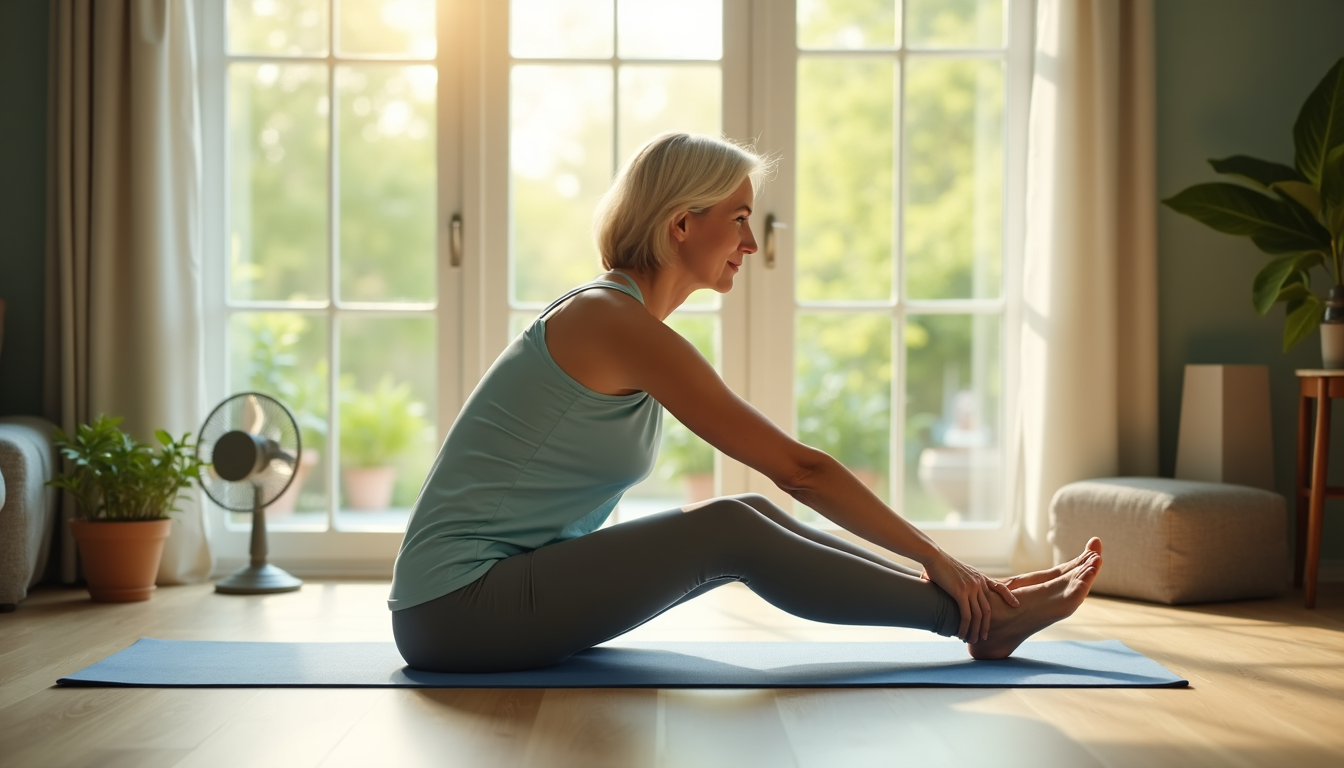
Are you tired of feeling sluggish and out of shape? Are you searching for the key to living a healthier, happier life? Look no further! Regular exercise is the answer, and it’s time to unlock its potential. By understanding how exercise affects our body’s physiology, we can harness its power to transform our lives. So, buckle up and let’s dive into the wonderful world of exercise and its myriad of benefits.
1. Exercise and the Musculoskeletal System
Regular exercise has a profound impact on the musculoskeletal system, the foundation of our body’s movement and posture. Engaging in physical activity causes our muscles to contract and lengthen, resulting in a myriad of benefits, such as:
1.1. Increased Muscle Strength and Endurance
With consistent exercise, our muscles become stronger and more resistant to fatigue, allowing us to perform daily tasks with ease and enjoy our favorite activities without feeling worn out.
1.2. Boosted Bone Density
Exercise, particularly weight-bearing activities like walking or lifting weights, stimulates our bones to increase in density. This results in stronger, more break-resistant bones, helping to prevent conditions like osteoporosis.
1.3. Enhanced Connective Tissue Strength
As we exercise, our connective tissues (ligaments and tendons) also strengthen, resulting in more structurally sound joints and muscle-to-bone connections. This improved support can lead to increased flexibility, reduced joint pain, and a lower risk of injury.
Cardiovascular System: Pumping Up the Benefits
Our cardiovascular system works in tandem with the musculoskeletal system to ensure we have the energy and oxygen needed to power through our workouts. Here are some ways exercise benefits this crucial system:
2.1. Improved Heart Efficiency
Regular exercise strengthens our heart and normalizes blood pressure, reducing the risk of heart disease. With a more efficient cardiovascular system, we can enjoy increased energy levels and better overall health.
2.2. Enhanced Blood Flow and Oxygen Delivery
Exercise stimulates the circulatory system, increasing blood flow to our muscles and other tissues. This improved circulation ensures that our body receives the oxygen and nutrients it needs for optimal performance.
2.3. Lowered Blood Pressure
Incorporating regular exercise into our routine can help lower blood pressure, especially for those with hypertension. Healthy blood pressure reduces the risk of stroke, heart attack, and other cardiovascular issues.
3. Respiratory System: Breathing Easy
The respiratory system is another key player in our exercise journey, working to supply oxygen to our body and remove waste like carbon dioxide. Here’s how exercise benefits our lungs and airways:
3.1. Increased Breathing Rate and Volume
During exercise, our breathing rate and the volume of air we inhale and exhale increase. This ensures that our bloodstream is saturated with oxygen and that waste carbon dioxide is efficiently expelled.
3.2. Enhanced Lung Function
Regular exercise can improve lung function, allowing us to use oxygen more efficiently and produce more energy. This leads to better stamina and endurance, making physical activities and daily tasks feel less taxing.
4. Hormonal Harmony: Exercise’s Impact on Our Endocrine System
Our endocrine system, responsible for producing and regulating hormones, is also influenced by exercise. Physical activity can help balance our hormonal levels, resulting in a plethora of benefits:
4.1. Improved Metabolism
Exercise has a positive effect on our metabolism, enabling us to burn calories more efficiently and manage our weight effectively.
4.2. Enhanced Insulin Sensitivity
Regular exercise can increase insulin sensitivity, helping our body regulate blood sugar levels more effectively. This can reduce the risk of developing type 2 diabetes and improve overall health.
4.3. Mood Elevation
Physical activity triggers the release of feel-good hormones like serotonin and endorphins, lifting our mood and combating stress, depression, and anxiety.
5. Immune System: Exercise as a Natural Defense
Moderate regular exercise strengthens our immune system, making it more efficient at fighting off infections and keeping us healthy. This natural defense mechanism can help:
5.1. Prevent Illness
Consistent exercise has been shown to reduce the risk of catching common illnesses like colds and flu. By maintaining a strong immune system, we’re better equipped to ward off pesky infections.
5.2. Speed-Up Recovery
A robust immune system can also aid in a faster recovery from illness or injury, enabling us to bounce back more quickly and resume our normal activities.
6. Nervous System: Exercise for a Sharp Mind
Our nervous system, which includes the brain and nerves, also benefits from regular exercise. Here’s how physical activity can improve our cognitive function:
6.1. Enhanced Focus and Memory
Exercise has been shown to improve focus and memory by promoting the growth of new brain cells and increasing the activity of brain-derived neurotrophic factor (BDNF). This can lead to better learning and a reduced risk of cognitive decline and Alzheimer’s disease.
6.2. Reduced Stress and Anxiety
Physical activity has a calming effect on the nervous system, thanks to better circulation and reduced muscle tension. Regular exercise can help alleviate stress and anxiety, leading to a more relaxed and peaceful state of mind.
7. Digestive System: Exercise for a Happy Gut
Our digestive system also benefits from regular exercise, as physical activity can help improve digestion and waste elimination. Some of the perks include:
7.1. Improved Gut Motility
Exercise stimulates the gut and increases blood flow to the digestive system’s muscles, helping to move food through the digestive tract more efficiently. This can prevent issues like constipation and promote a healthier gut.
7.2. Enhanced Gut Microbiota
Physical activity can also influence the composition and variety of our gut bacteria, which play a crucial role in our overall health. Exercise has been shown to increase the number of beneficial bacteria in our gut, promoting better digestion and immune function.
8. Exercise for Better Sleep
Struggling with sleepless nights? Exercise can help! Regular physical activity has been shown to:
8.1. Improve Sleep Quality
Exercise can help you fall asleep faster, enjoy deeper sleep, and wake up feeling more refreshed. Just avoid exercising too close to bedtime, as the energizing effects of exercise might make it harder to fall asleep.
8.2. Regulate Sleep Patterns
Incorporating exercise into your daily routine can help regulate your sleep patterns, ensuring that you get a consistent and restful night’s sleep.
9. Exercise and Sex Life: Reigniting the Spark
Regular exercise can also have a positive impact on our sex lives by:
9.1. Boosting Energy and Confidence
Exercise can improve energy levels and self-confidence, leading to a more satisfying and enjoyable sex life.
9.2. Improving Arousal and Performance
For women, regular exercise may enhance arousal, while men who exercise regularly are less likely to experience erectile dysfunction. Exercise can help ensure that our intimate moments are as pleasurable and fulfilling as possible.
10. Exercise as a Social and Fun Activity
Lastly, exercise doesn’t have to be a chore! It can be a fun and social activity that lets you unwind, enjoy the outdoors, and connect with others. So, try a dance class, join a hiking group, or participate in a team sport. Find an activity that you enjoy and share the experience with friends or family.
In Conclusion: Embrace the Power of Exercise
Exercise is a powerful tool that can transform our lives, improving our physical, mental, and emotional well-being. By understanding how exercise affects our body’s physiology, we can unlock its potential and reap the numerous benefits it offers. So, take the first step towards a healthier, happier you and embrace the power of exercise today!









